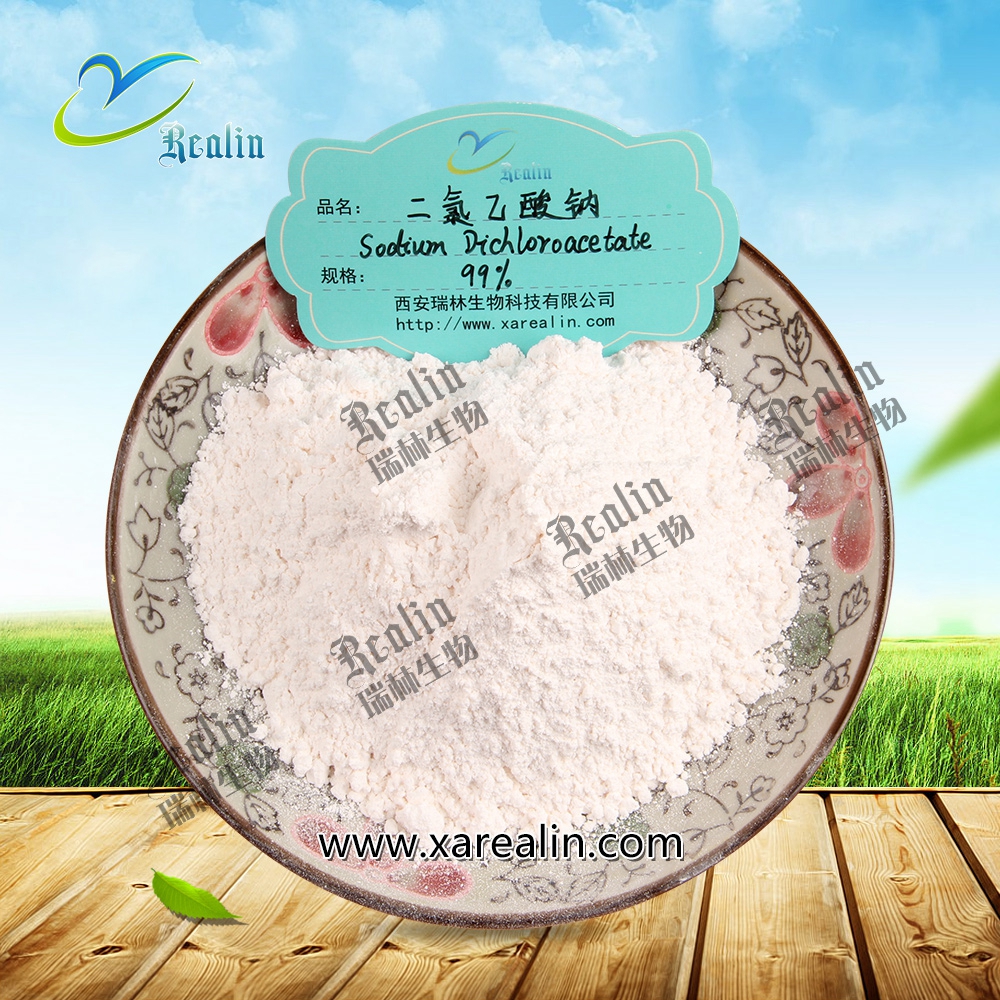Sodium Dichloroacetate
Details of Sodium Dichloroacetate:
Other name: Dichloroacetate Sodium, DCA
Purity: above 99%
Appearance: White powder
Function: Anti Cancer, Antineoplastic
CAS No.: 2156-56-1
MF: C2HCl2NaO2
EINECS No.: 218-461-3
MOQ: 1KG
Packaging: 1kg/foil bag, 25kg/fiber drum
Shelf life: 2 years
Description of Pharmaceuticals Sodium Dichloroacetate:
Dichloracetic acid and sodium dichloroacetate are man-made chemicals that have not been found in nature.
The pure form, dichloracetic acid, is a strong acid that can burn the skin and injure tissues. It can cause spasms of the body's airways if it is inhaled. Dichloracetic acid is used in the process of making certain other chemicals, including some drugs. It has also been used as a medicine to remove warts or other skin growths.
Sodium dichloroacetate is a different ("buffered") form of the same chemical. This form is not an acid, and can be taken by mouth without causing burning. The term "DCA" in this information refers to this form of the chemical.
DCA can also be absorbed into the body through the skin.
Uses of Pharmaceuticals Sodium Dichloroacetate:
The only confirmed medical use for sodium dichloroacetate is for removing warts and other skin growths, according to the American Cancer Society. Researchers have tested it on humans for decreasing lactic acid buildup, or lactic acidosis, in rare diseases involving metabolism or caused by severe head injuries and malaria. Side effects have been a problem with this possible treatment.
Theories/Speculation of Pharmaceuticals Sodium Dichloroacetate:
Doctors at the University of Alberta have been researching mitochondria in cancer cells, according to the ACS. Mitochondria are tiny functional structures inside all cells. In the laboratory, abnormal mitochondria appeared to keep cancer cells alive. Because sodium dichloroacetate can affect an important enzyme in mitochondria, the researchers theorized it might normalize mitochondria functioning in the cancer cell, which might render it noncancerous.
Effects of Pharmaceuticals Sodium Dichloroacetate:
A study by the University of Alberta researchers published in the January 2007 issue of "Cancer Cell" showed that dichloroacetate slowed the growth of cancer cells in a lab dish and that rats drinking water treated with this substance experienced much slower tumor growth than rats not drinking this type of water. The University of Alberta website explains that dichloroacetate does not affect noncancerous tissue, unlike most types of chemotherapy.








